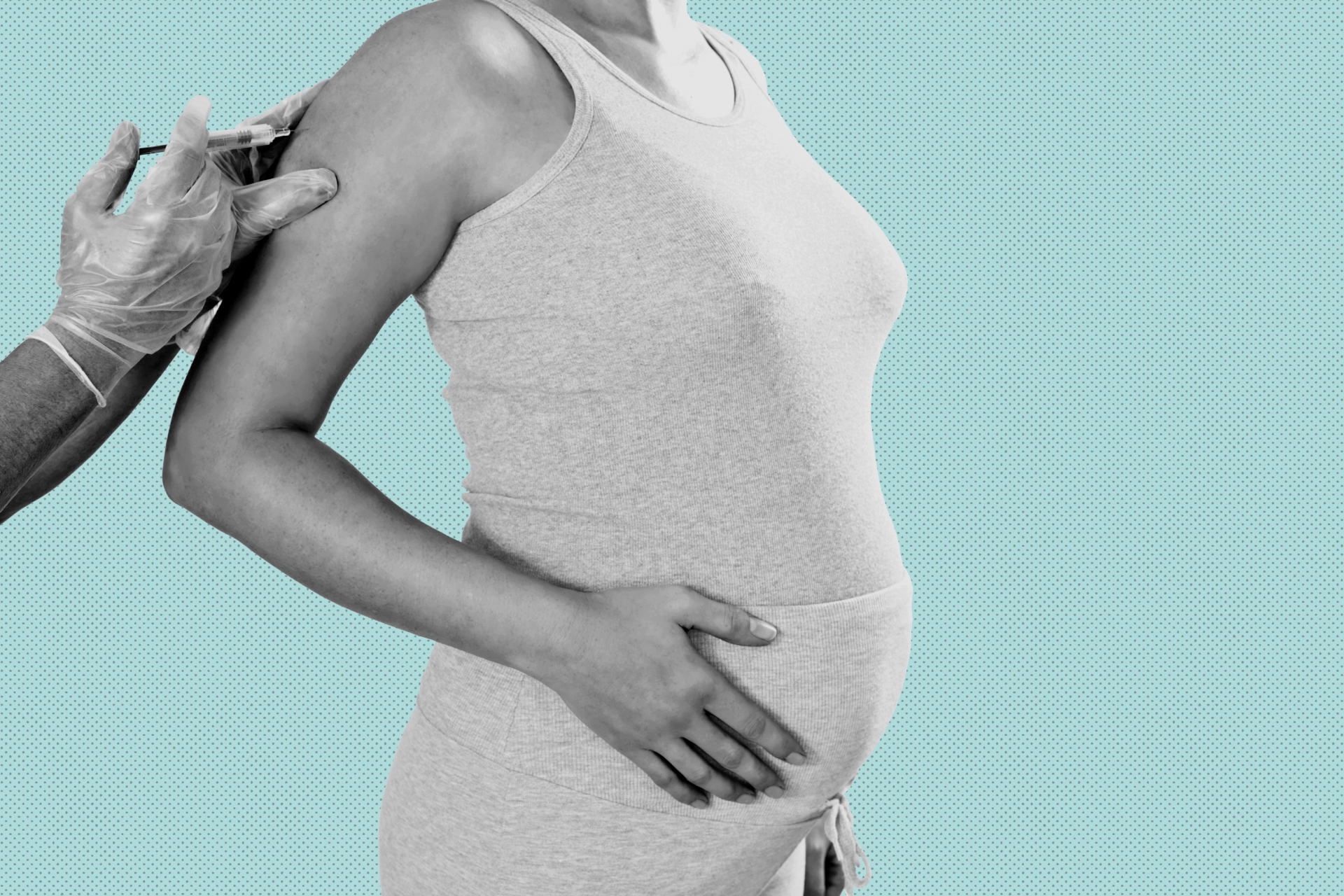What are the needed vaccines for women before and during pregnancy?
 |
| Photo: todaysparent.com |
Vaccines Before Pregnancy
If you’re planning to get pregnant, it’s important to make sure you’re up to date on all of your adult vaccines. Before your pregnancy, talk with your doctor about your vaccine history. You may need these vaccines:
Chickenpox (Varicella)
Having chickenpox as an adult can be quite serious. And if you’re pregnant, it’s not only uncomfortable, it could also spell trouble for your growing baby-to-be. Before you become pregnant, get checked by your doctor to see if you need the varicella vaccine — women who are already pregnant should not receive the vaccine.
If bloodwork reveals that you’re not immune to chickenpox, the vaccine helps keep the pox at bay. If you have not had two doses of the varicella vaccine before, you’ll need two doses, four to eight weeks apart. Then, if you can, hold off on conceiving until a month after your second dose.
Measles, Mumps, and Rubella (MMR)
In addition to all three of these being very uncomfortable illnesses, rubella — aka German measles — can cause miscarriage and birth defects, while a mumps infection increases miscarriage risk and measles ups the odds of preterm birth or a low-birth-weight baby. What’s more, you can't get the MMR vaccine during pregnancy.
Keep in mind that if your vaccination records show that you got an MMR shot when you were younger, you are considered protected for life and don’t ever need a booster dose. However, if you weren’t immunized according to the childhood schedule, you should get vaccinated and then wait one month before trying to conceive.
Hepatitis B
If you have hepatitis B infection during pregnancy, it can pass to your baby during birth. Hepatitis B can lead to serious, ongoing health problems for your child. Talk with your doctor about getting tested for hepatitis B and whether or not you need to get vaccinated.
The vaccine comes in a series of three shots, but you don’t need to finish all three doses before conceiving. It’s safe to continue with the series during pregnancy.
Vaccines During Pregnancy
 |
| Photo: parents.com |
All pregnant women need to get vaccinated against the flu and whooping cough during each pregnancy.
Whooping cough
About 7 in 10 deaths from whooping cough are among babies younger than 2 months old. These babies are too young to be protected by their own vaccination. The younger the baby is when they get whooping cough, the more likely they will need to be treated in a hospital.
It may be hard to know if a baby has whooping cough because many babies with this disease don’t cough at all. Instead, it can cause them to stop breathing and turn blue.
When a pregnant woman gets a whooping cough vaccine during pregnancy, her body will create protective antibodies and pass some of them to the baby before birth. These antibodies will provide the baby some short-term, early protection against whooping cough. CDC recommends getting a whooping cough shot during the 27th through 36th week of each pregnancy, preferably during the early part of the earlier part of this time period.
Flu
Getting vaccinated against the flu is important because pregnant women are at increased risk for serious complications from the flu. The flu can also cause serious problems like early labor and delivery, which can affect your baby’s health.
In addition to protecting you and your unborn baby, getting the flu shot during pregnancy makes it less likely that newborns will get the flu for several months after they’re born — and that lowers their risk of serious complications like pneumonia (lung infection).
Other vaccines you may need during pregnancy
You may also want to talk to your doctor about getting these vaccines during pregnancy if you meet particular risk factors, such as having a chronic illness or working or traveling in places where you may be exposed to the disease:
Pneumococcal vaccines: These vaccines protect people who are at risk from the infections caused by this bacteria — i.e. cigarette smokers; those with chronic heart, lung, liver or kidney disease; asthma sufferers; and those with compromised immune systems — including pneumonia, meningitis, and ear infection.
Hepatitis A vaccine: The hepatitis A virus, which is usually transmitted through food that has been contaminated with an infected person's feces, causes an inflammation of the liver. If you have chronic liver disease, take the medication with clotting factor agents, or work in a lab where you’d be exposed to the hepatitis A virus, you may need this vaccination. Your doctor may also decide to give you the shot if you’re traveling to a place where there’s an increased risk of contracting the disease, including Mexico, Eastern Europe, and Central or South America.
Meningococcal vaccines: Meningococcus bacterial infection can result in severe meningitis (infection of the membranes covering the brain) and can progress extremely rapidly, sometimes causing death in 24 to 48 hours. The good news is the disease is not common in the U.S., but you may need to get a meningococcal vaccine if you are at increased risk of contracting the disease.
Vaccines not usually advised in pregnancy (live vaccines)
 |
| Photo: esaic.org |
| If a vaccine uses a live version of the virus, such as the MMR vaccine, you'll usually be advised to wait until after your baby is born before you get vaccinated. This is because there's a potential risk that live vaccines could cause your unborn baby to become infected. But there's no evidence that any live vaccine causes birth defects. |
Sometimes, a live vaccine may be used during pregnancy if the risk of infection is greater than the risk of the vaccination. Your midwife, GP, or pharmacist can give you more advice about vaccinations during pregnancy. Live vaccines include:
BCG (vaccination against tuberculosis)
MMR (measles, mumps, and rubella)
oral polio (which forms part of the 5-in-1 vaccine given to infants)
oral typhoid
yellow fever
Vaccines your partner and family should get
| Anyone who takes care of or spends a lot of time with your baby — including grandparents, siblings, caregivers, babysitters, and daycare providers — should be up-to-date on their shots too. They should all receive a flu vaccine since the virus is so prevalent and the formulation changes every year. And also make sure they are up-to-date on their Tdap or DTaP vaccines, since pertussis is highly contagious, and statistics show that most babies get whooping cough from a family member. |
Follow KnowInsider for more informative articles!
 What are the best foods to gain weight fast and safe? What are the best foods to gain weight fast and safe? Are you too slim? Are you tired of eating too much but not gaining weight? Let's follow this piece of information to know more about ... |
 What are the best foods to gain muscle mass? What are the best foods to gain muscle mass? Bodybuilding is centered around building your body’s muscles through weightlifting and nutrition. So how can you ensure you gain more muscle than fat? This page ... |
 What are best foods when you are on period? What are best foods when you are on period? Periods are the worst with many uncomfortable symptoms, so it's totally understandable that you want to find some ways to reduce these pains. We figure ... |


























